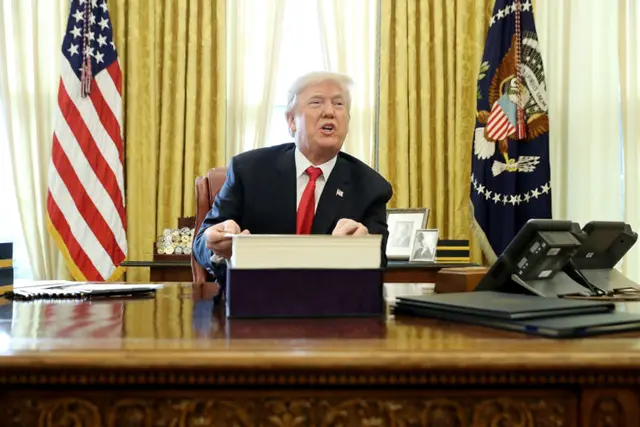Margaret Thatcher has made a few personal initiatives as British prime minister in Sino-British relations, a Hong Kong scholar said on April 15.
"It's one of the most important diplomatic events in the 1980s," Simon Shen, an associate professor and Director of Global Studies Programme of The Chinese University of Hong Kong, said in an interview with the Asia Pacific Daily.
When the news of Thatcher’s death was made known, both Chinese leadership and Hong Kong people extended deep condolences and paid tribute to the Iron Lady.
Thatcher signed the Sino-British Joint Declaration in 1984 and guaranteed a smooth transition of Hong Kong's sovereignty from Britain back to China. "I think the mainstream voice would agree with this fact and that should be credited by the British government," Shen added.
A person lays flowers outside the residence of Baroness Thatcher at the Chester Square in London, Britain, on April 8, 2013. It has been confirmed that Lady Thatcher died this morning following a stroke at the age of 87. (Xinhua/Wang Lili)
But not everyone shares the same view. Criticism of Thatcher has existed over the issue of the handover. Shen explained that from Beijing's perspective, Thatcher did try her best to retain British interest via different means, and this is part of the reason why Hong Kong is not yet so psychologically handed over to the PRC.
On the other hand, many Hong Kong locals felt that Britain had let the city down. Shen said that some Hong Kongers criticized Thatcher for not paying attention to their demands of giving everyone in the city the rights to vote.
During the historic talks with the then Chinese leader Deng Xiaoping in Beijing in 1982, Thatcher lobbied Deng to accept the concept that the British could continue to administer Hong Kong after it returned to the Chinese sovereignty. Instead, under the terms of the declaration, the Chinese agreed the city could continue to retain a high degree of autonomy, including its own political and economic system for a period of 50 years.
Shen believed this is "the most important legacy Thatcher has left to Hong Kong people, and we should more or less credit her together with the Chinese leaders."
He explained that on one hand, Hong Kong is still practicing the "one country, two systems," which ha s been a success over the past 15 years since its return to the Chinese Mainland. On the other hand, a lot of British legacies like the infrastructures and the systems are still here. "I think Thatcher has made a few so-called personal initiatives," Shen added.
 简体中文
简体中文





